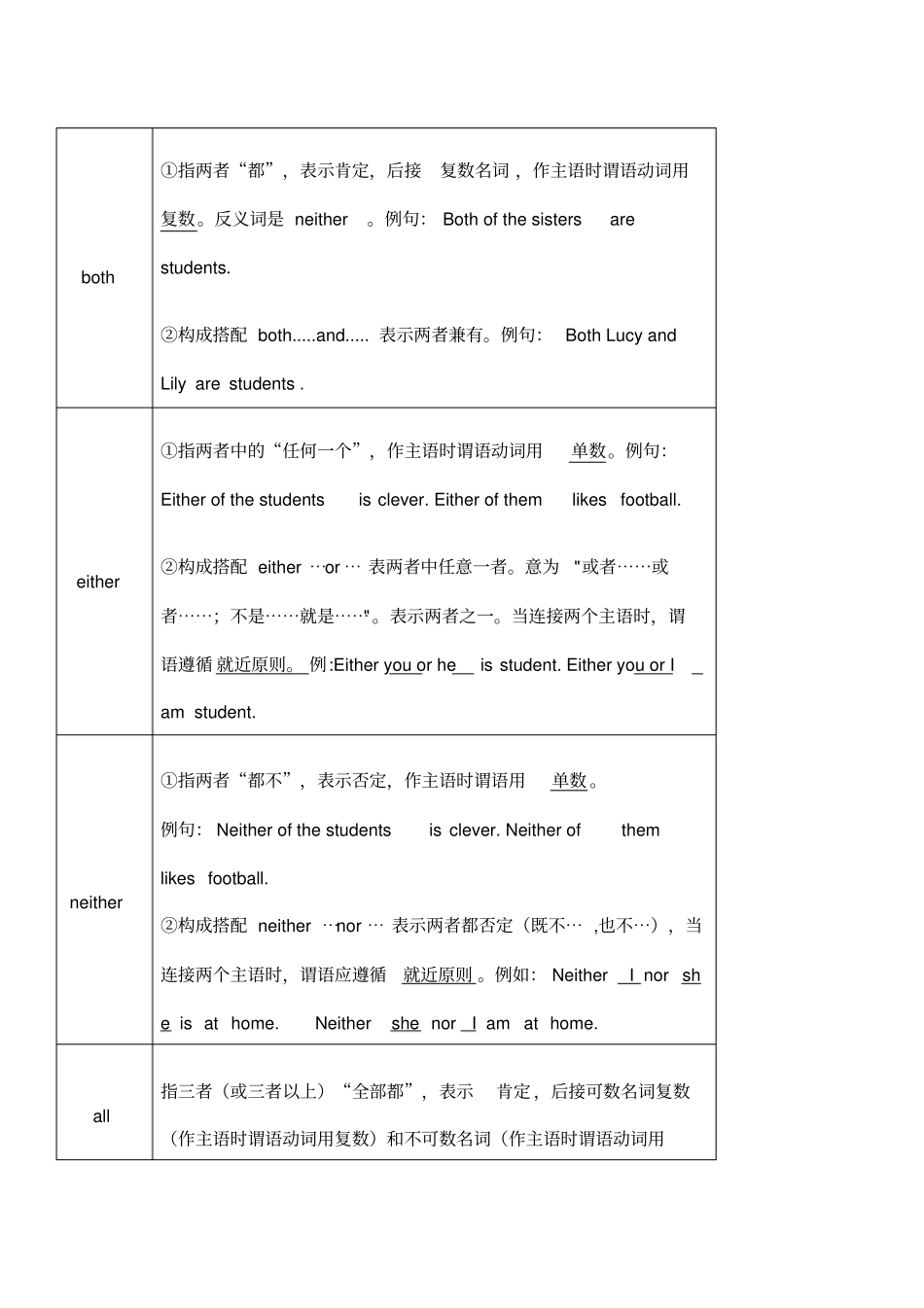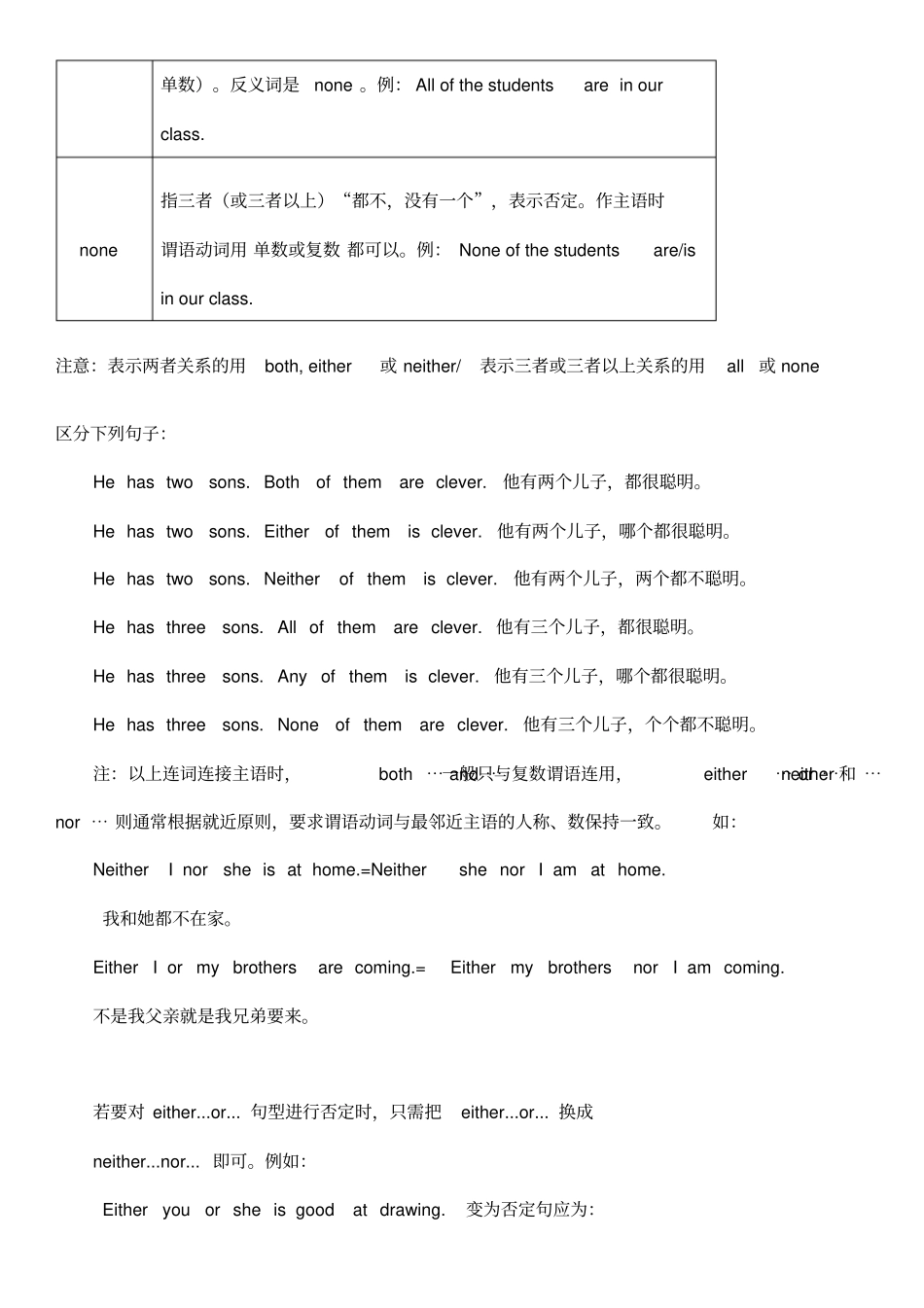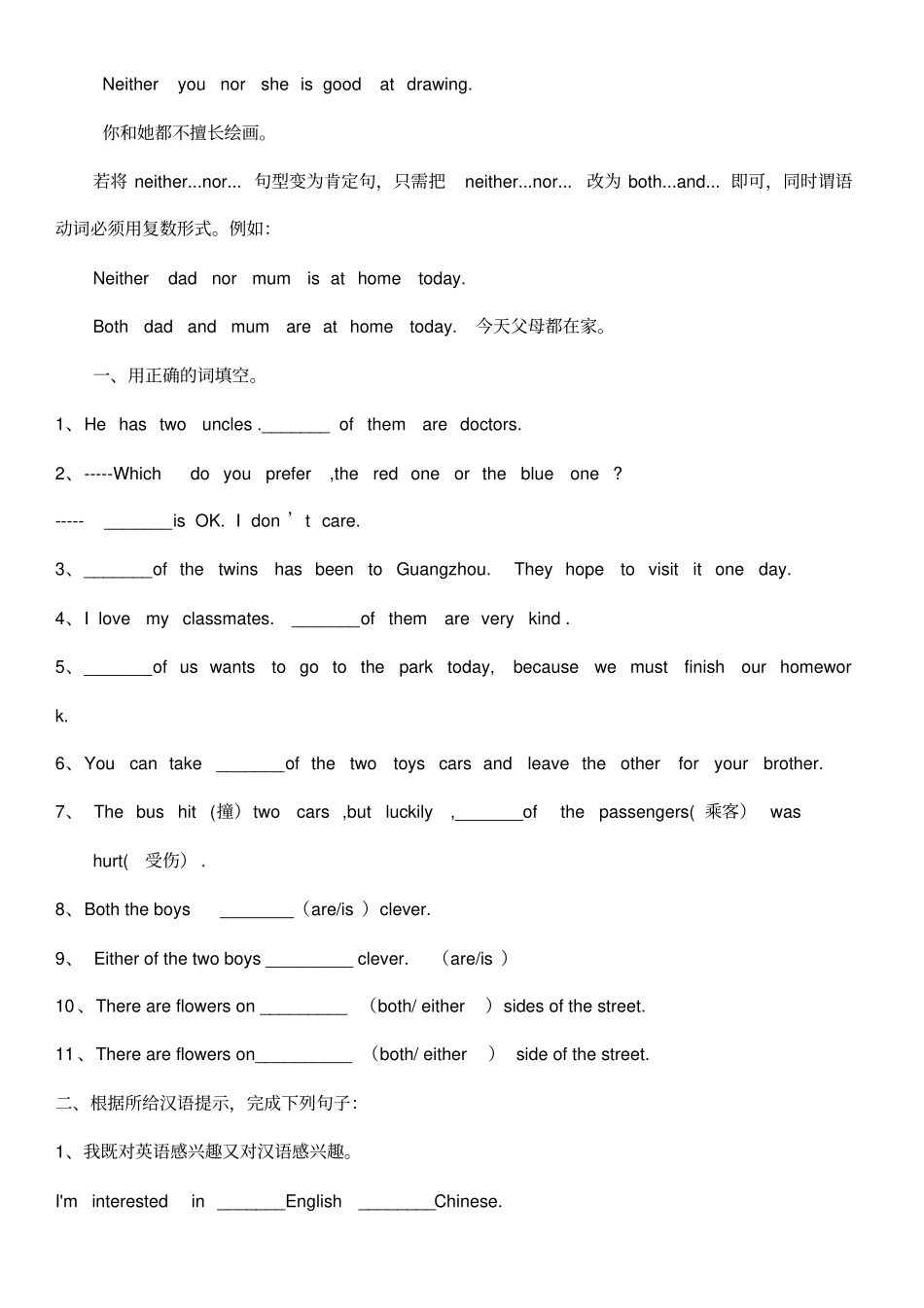both ①指两者“都”,表示肯定,后接复数名词 ,作主语时谓语动词用复数。反义词是 neither 。例句: Both of the sistersarestudents. ②构成搭配 both.....and..... 表示两者兼有。例句: Both Lucy and Lily are students . either ①指两者中的“任何一个”,作主语时谓语动词用单数。例句:Either of the studentsis clever. Either of them likes football. ②构成搭配 either ⋯or ⋯ 表两者中任意一者。意为"或者⋯⋯或者⋯⋯;不是⋯⋯就是⋯⋯"。表示两者之一。当连接两个主语时,谓语遵循 就近原则。 例:Either you or he is student. Either you or I am student. neither ①指两者“都不”,表示否定,作主语时谓语用单数 。例句: Neither of the studentsis clever. Neither of themlikes football. ②构成搭配 neither ⋯nor ⋯ 表示两者都否定(既不⋯ ,也不⋯),当连接两个主语时,谓语应遵循就近原则 。例如: Neither I nor she is at home. Neither she nor I am at home. all 指三者(或三者以上)“全部都”,表示肯定 ,后接可数名词复数(作主语时谓语动词用复数)和不可数名词(作主语时谓语动词用单数)。反义词是none 。例: All of the students are in our class. none 指三者(或三者以上)“都不,没有一个”,表示否定。作主语时谓语动词用 单数或复数 都可以。例: None of the students are/isin our class. 注意:表示两者关系的用both, either或 neither/表示三者或三者以上关系的用all 或 none 区分下列句子:He has two sons. Both of them are clever. 他有两个儿子,都很聪明。He has two sons. Either of themis clever. 他有两个儿子,哪个都很聪明。He has two sons. Neither of themis clever. 他有两个儿子,两个都不聪明。He has three sons. All of them are clever. 他有三个儿子,都很聪明。He has three sons. Any of them is clever. 他有三个儿子,哪个都很聪明。He has three sons. None of them are clever. 他有三个儿子,个个都不聪明。注:以上连词连接主语时,both ⋯ and ⋯ 一般只与复数谓语连用,either⋯ or ⋯和neither⋯nor ⋯ 则通常根据就近原则,要求谓语动词与最邻近主语的人称、数保持一致...


